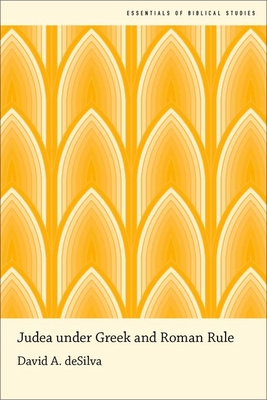
description
n of the history of Judea and its neighboring regions from 334 BCE, when Alexander's eastward conquests brought Judea into the Greek empire, through 135 CE, when Hadrian re-founded Jerusalem as Aelia Capitolina and banished Jews from the city limits -- a formative period both for early Judaism and the Christian movement. This history unfolds against a backdrop of international politics that constrained developments within Judea, including wars between the Seleucid and Ptolemaic empires for control of Palestine, internal wars that led to the decline of the Seleucid empire, and the eastward expansion and consolidation of Roman rule. Judea under Greek and Roman Rule focuses on the Hellenizing Reform that precipitated the Maccabean Revolt, the establishment of an independent kingdom under the Hasmonean Dynasty, the rule of Herod and transition to Roman rule, the circumstances that precipitated two devastating revolts against Roman domination, and constructive responses (both literary and practical) within Judaism to both revolts and the consequences.
member goods
No member items were found under this heading.
listens & views

DEBUT CONCERT: BRUSSELS 1983
by MIGNONE / GNATTALI / COUPERIN / PETIT / ASSAD
COMPACT DISCout of stock
$16.99
Return Policy
All sales are final
Shipping
No special shipping considerations available.
Shipping fees determined at checkout.






